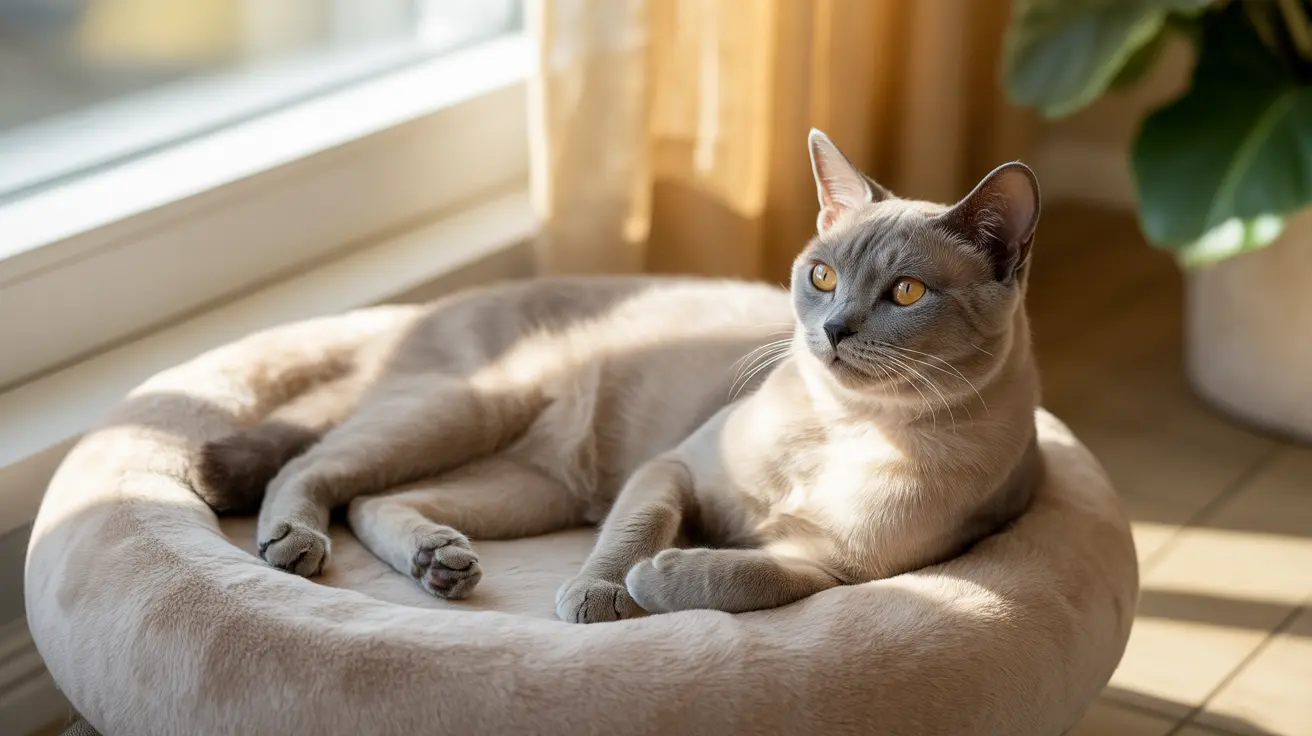Curious about your feline friend's potential lifespan? Understanding how long cats can live and the factors that influence their longevity can help you provide the best care possible for your pet. From genetics to lifestyle choices, numerous elements play crucial roles in determining a cat's life expectancy.
In this comprehensive guide, we'll explore the average lifespan of cats and reveal proven strategies to help your furry companion live a longer, healthier life.
Understanding Average Cat Lifespan
Most domestic cats live between 13 to 17 years, with many reaching their early twenties under optimal conditions. The current record holder for the oldest living cat is Flossie, who reached the impressive age of 27. Even more remarkably, the all-time record holder, Creme Puff from Texas, lived to be 38 years and 3 days old.
Indoor vs. Outdoor Living: Impact on Longevity
One of the most significant factors affecting how long cats can live is whether they're kept indoors or outdoors. Indoor cats typically enjoy lifespans of 10-15 years or more, while outdoor cats often live only 2-5 years on average.
This dramatic difference is due to indoor cats being protected from various risks, including:
- Traffic accidents
- Predatory animals
- Exposure to diseases
- Extreme weather conditions
- Access to toxins or harmful substances
Breed-Specific Lifespan Variations
Different cat breeds can exhibit varying life expectancies. Some notable examples include:
- Burmese and Birman cats: Average 14.4 years
- Siamese and Manx cats: Known for longevity
- Sphynx cats: Average 6.8 years
Interestingly, mixed-breed cats tend to live about 1.27 years longer than purebred cats, likely due to genetic diversity.
Key Factors Affecting Cat Longevity
Nutrition and Weight Management
Proper nutrition plays a vital role in extending your cat's lifespan. Maintaining a healthy weight is crucial, as studies show that every 100 grams of excess weight can reduce a cat's lifespan by approximately seven days.
Healthcare and Preventive Medicine
Regular veterinary check-ups, vaccinations, and preventive care significantly impact how long cats can live. Early detection and treatment of common health issues can add years to your cat's life.
Genetics and Gender
Female cats typically live about 1.33 years longer than males. Additionally, genetic factors influence disease susceptibility and overall longevity.
Tips for Maximizing Your Cat's Lifespan
To help your cat live a longer, healthier life:
- Provide a balanced, age-appropriate diet
- Maintain regular veterinary check-ups
- Keep your cat indoors or create a safe outdoor environment
- Ensure adequate exercise and mental stimulation
- Consider spaying or neutering
- Create a stress-free environment
Frequently Asked Questions
How long can cats live on average, and what factors affect their lifespan?
Cats typically live 13-17 years, with factors like genetics, diet, healthcare, and environment playing crucial roles in determining lifespan. Indoor cats generally live longer than outdoor cats, and proper care can help them reach their twenties.
Why do indoor cats generally live longer than outdoor cats?
Indoor cats live longer because they're protected from dangers like traffic accidents, predators, diseases, and harsh weather conditions. They also benefit from more consistent access to food, water, and medical care.
How does genetics influence a cat's lifespan, and which breeds are known for longevity?
Genetics significantly impacts lifespan, with some breeds like Burmese and Birman cats known for living longer. Mixed-breed cats often outlive purebreds due to genetic diversity and typically fewer inherited health issues.
What is the best diet for maximizing a cat's lifespan, and how can I ensure my cat is getting the right nutrients?
The best diet includes high-quality, age-appropriate cat food with proper protein levels and essential nutrients. Portion control is crucial, as maintaining a healthy weight significantly impacts longevity.
How can I use preventive care and lifestyle adjustments to extend my cat's healthy years?
Regular veterinary check-ups, maintaining a healthy weight, providing mental stimulation, and creating a safe environment are key to extending your cat's life. Preventive care should include vaccinations, dental care, and parasite prevention.
Conclusion
While genetics plays a significant role in determining how long cats can live, proper care and attention to their health needs can significantly extend their lifespan. By following the guidelines outlined in this article and maintaining regular veterinary care, you can help your feline friend live a longer, healthier life.






